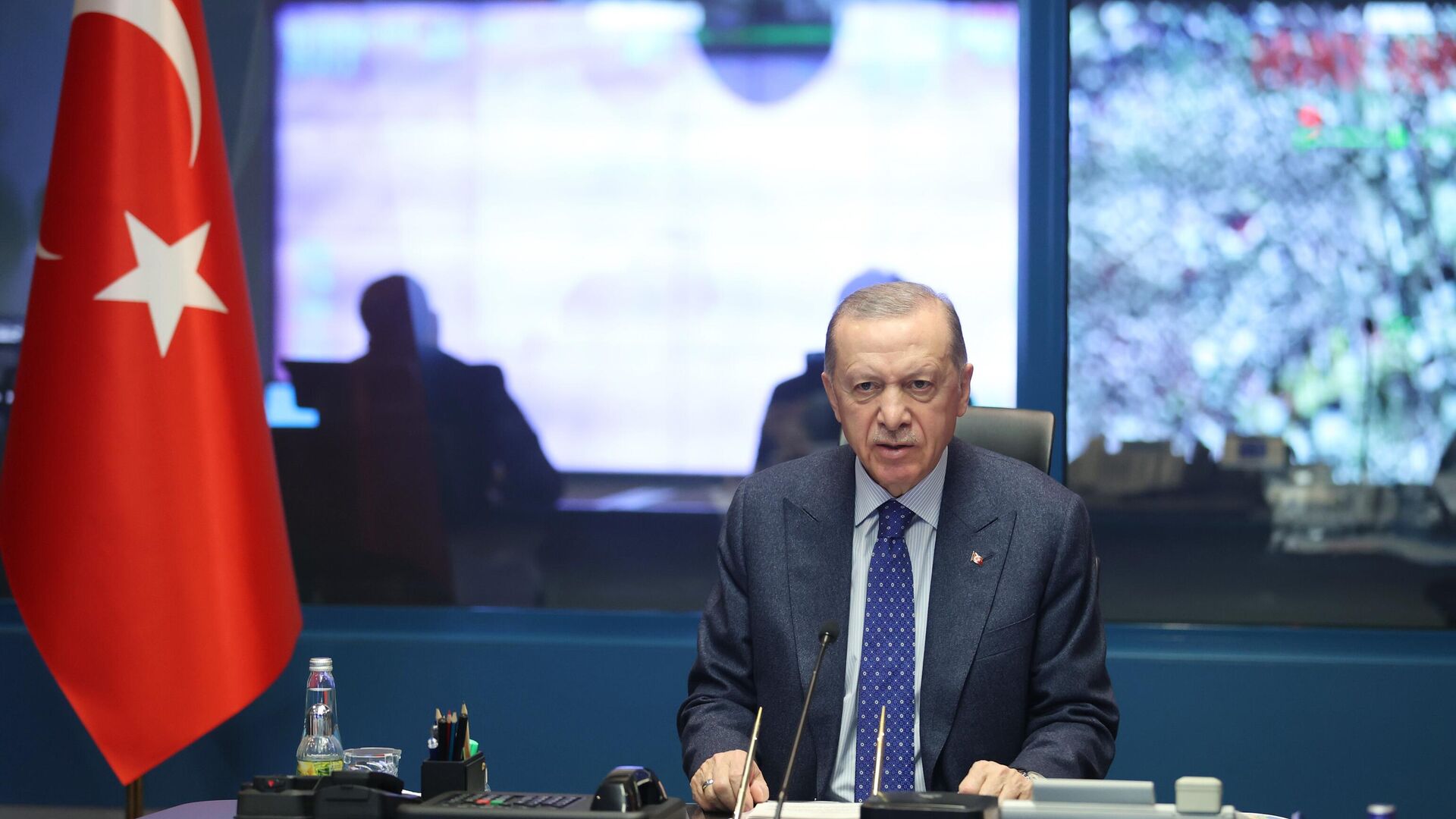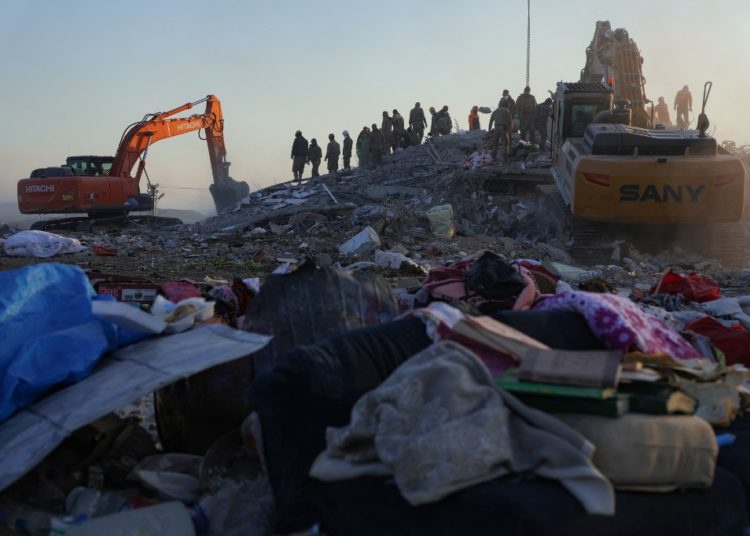Levent Kenez/Stockholm
Turkish President Recep Tayyip Erdoğan, in a weekly address to party deputies in January, announced that early presidential and parliamentary elections would be held on May 14. However, after a major earthquake that struck the southeastern part of the country and neighboring Syria in the early hours of February 6, it seems almost impossible to hold the elections on this date, nor does it even seem feasible to hold them on June 18 as originally scheduled.
According to reports in the Turkish media, the government will still announce early elections, but the Supreme Election Board (YSK) will not agree to the May date, arguing that it would be impossible to hold the elections because of the earthquake. The board is expected to oppose any date in May or June on the grounds that it is impossible to update voter polls in the disaster area or set up ballot boxes in the region, where 13 million people live. According to the Turkish Constitution, elections can be moved from the scheduled date only in the event of war. However, opposition parties have no right to appeal to the Constitutional Court when the YSK makes such a decision.
Political observers think Erdoğan’s declaration of a state of emergency after the earthquake was an election-oriented move. While it is customary to declare a region a “disaster area,” which provides additional powers to local authorities and the central government, according to Turkish Constitution, they claim that Erdoğan’s decision for the state of emergency was to issue decree-laws that cannot be disputed at the Constitutional Court.

Many claim that the anger on Erdoğan’s face and the insults he leveled at the opposition when he first appeared in front of the cameras 36 hours after the earthquake struck were a result of fact that the preparations and plans he made for the elections he thought would be held on May 14 had fallen through.
In Turkey, where the economy is deteriorating and inflation is high, Erdoğan doubled the minimum wage in early 2023. He had planned that the situation of minimum wage workers would improve a little due to the wage hikes in February and that they would still have some money in their pockets between May and June.
Likewise, Erdoğan declared on January 2 that he had enacted a 25 percent raise for civil servants. The next day he announced he had increased the pay hike to 30 percent after a backlash stemming from the fact that the raise was far lower than inflation.
Economists say the effect of the increase in salaries will disappear during the year due to inflation, so Erdoğan wanted to hold the elections as soon as possible, and thus in May. As a side note, for the implementation of a new election law passed by the government and its partners, the elections must be held after April 6.
The Erdoğan government was also working towards a comprehensive tax amnesty and a plan to restructure debts to public institutions. In addition, financing would be provided to banks so that people who do not own a home could buy one in reasonable installments.
Last September Erdoğan’s government announced that the debts of people who owe up to 2000 Turkish lira would be forgiven, adding that private companies will be able to deduct the amount from the taxes they owe the state.
The government last December eliminated a mandatory age of retirement in a move that allowed more than 2 million workers to retire immediately. The new arrangement was to benefit people who started working before September 1999, when the law regulating retirement age changed, and who have completed 20 to 25 years of service in a social security-registered job.
In previous statements Erdoğan had declared that he was absolutely against such an arrangement and said he would not allow it even if he knew he would lose the election.
Erdoğan had come a long way in financing the public expenditures he would make before the elections. Russia postponed an approximately $20 billion natural gas debt incurred by Turkish public company BOTAŞ until after 2023. The Turkish Central Bank announced that Qatar had agreed to a $10 billion swap deal in January. In addition Saudi Arabia announced that it would deposit $5 billion into its account at the central bank
Postponing the elections complicates Erdoğan’s job not only economically but also politically. It was rumored that the government was planning to launch a unilateral ground operation in Syria against the Kurdistan Workers’ Party (PKK) and groups Turkey claims to be affiliated with it before the elections. Creating a nationalist climate in the country was one of the possible aims of the Erdoğan government so that voters would prefer a continuation of the current government rather than a change in regime. In addition, the government was alleged to have prevented the opposition from cooperating with the pro-Kurdish Peoples’ Democratic Party (HDP).
It is obvious that the Turkish military’s operations in the near future in northern Syria, which has been destroyed by the earthquake, would cause international criticism and condemnation to an extent unseen in previous years.
On the other hand, the “anti-Western” rhetoric that Erdoğan frequently used in previous election campaigns and the rhetoric that global powers are trying to stop Turkey’s rise have also lost their validity. First of all, it turned out that the Turkish state is not as strong as Erdoğan tried to portray it to be. It has been revealed that for many years, Turkey has squandered its resources for coping with the effects of earthquakes due to bribery, waste and nepotism. It has become clear that $38 billion collected under a special consumption tax known as the earthquake tax was not spent in earthquake-related areas.

The arrival of aid teams from 76 countries including Turkey’s historic rivals such as Greece, Israel and Armenia has caused the Turkish public to view these countries favorably.
Experts speaking to the Turkish media estimate damage from the earthquake to be at least $85 billion. In a statement he made in the earthquake area, Erdoğan said the government should be allowed one year to rebuild the destroyed houses. Political observers think that it is in Erdoğan’s mind to delay the elections for one year.












